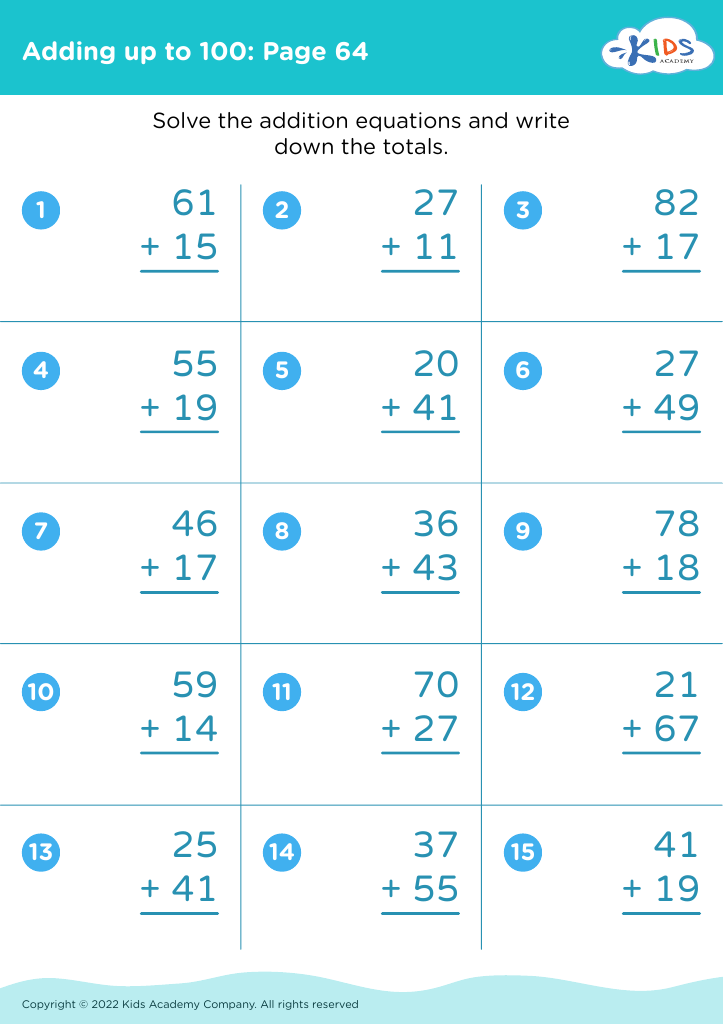Fraction Addition Adding up to 100 Worksheets for Ages 7-9
3 filtered results
-
From - To
Discover our engaging "Fraction Addition Adding up to 100 Worksheets," designed specifically for children aged 7-9. These worksheets provide students with a fun and interactive way to master the concept of adding fractions while staying within the total limit of 100. Each activity is tailored to develop fundamental math skills, enhancing both critical thinking and problem-solving abilities. With colorful illustrations and age-appropriate exercises, children will enjoy practicing their fraction addition, building confidence as they progress. Perfect for classroom use or at-home learning, these worksheets offer a fantastic resource for educators and parents alike, ensuring your child's math skills flourish.
Fraction addition is a critical skill for children aged 7-9 as it lays the foundation for more advanced mathematical concepts. Understanding how to add fractions helps students grasp the relationship between numbers and enhances their ability to solve real-world problems. When fractions add up to 100, as in the case of dealing with percentages or pie charts, it's particularly relevant to their everyday experiences, such as understanding discounts or nutritional values.
Parents and teachers should be invested in fostering this understanding because it promotes critical thinking and problem-solving abilities. Mastery of fraction addition, particularly through practical applications, establishes a solid base for subjects like measurement, algebra, and geometry, which students will encounter in higher grades. Moreover, engaging with fractions cultivates analytical skills and reinforces teamwork through collaborative math activities.
Additionally, helping students see the relevance of fractions in context increases their interest in math, making it a less daunting subject. When children feel competent in their skills, it boosts their confidence and encourages a growth mindset. Ultimately, focusing on fraction addition not only strengthens mathematical capabilities but also supports their overall cognitive and social development, benefiting them in and out of the classroom.










%20(1).jpg)











